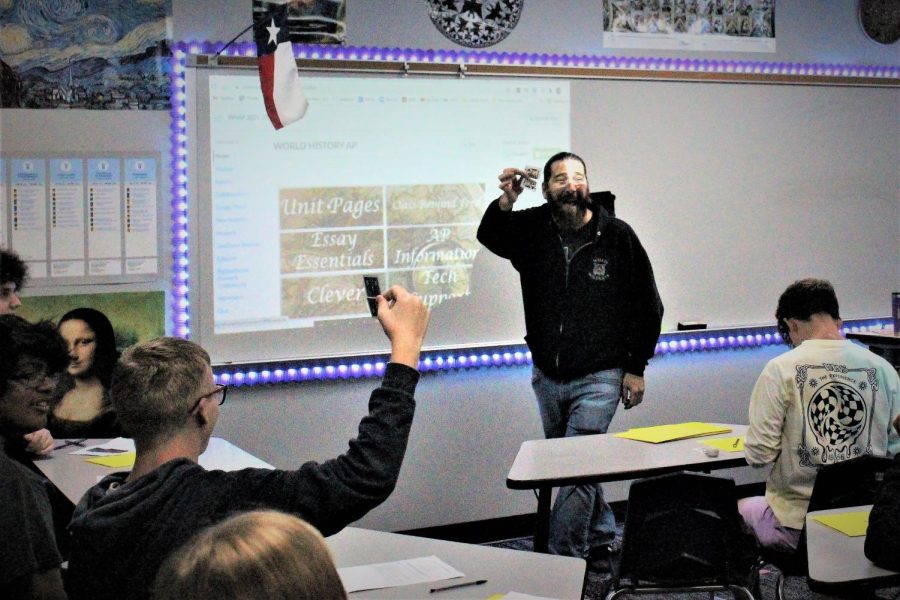AP World History teaches sophomores more than subject matter
More stories from Hannah Hartman
photo or infographic by Stone Chapman
NO MAGIC NEEDED. Teaching his class how to be successful in his class with a cards, AP World History teacher Michael Robinson shows his card to the class. For many of the students, this is the start of college level classes in their high school career.
The sophomores are tackling new levels of knowledge in not only their honors classes, but their AP classes. Becoming a part of AP classes is a test for the mind and helps the students with better time management to further their readiness for their junior year.
The nervous excitement from sophomore students joining AP World History led them to find different ways to try and know what to expect as they continue to take college level classes in high school and beyond.
“I was expecting this year to be a struggle with taking on AP World History,” sophomore Rylee Rick said. “That’s what my friends told me. But I found out that World History isn’t super difficult, but the workload is definitely a lot bigger than other classes.”
From the expectations of what to expect when joining the class to the unexpected outcomes from continuing the class, and purservering beyond it.
“I expected that I was going to fail the class, so I was going to drop it,” sophomore Kennin Winslow said. “It’s the hardest class I have, and the workload is a little different compared to the other classes. But, I’m really enjoying the class because I feel it makes me a better student and makes me work harder.”
Although it seems hard now for the sophomores, as they get further into the year their opinions may change and their knowledge expands.
“I honestly didn’t know what to expect until I got into the class,” sophomore Denieha Felder said. “Reading is definitely what makes the class so hard, but I feel like that’s only for the beginning. Once I get farther into the school it should become a lot easier. My favorite part of the class is all the debates that we have and explaining why we prefer this over that.”
Your donation will support the student journalists of Willis High School. Your contribution will allow us to purchase equipment and cover our annual website hosting costs.


